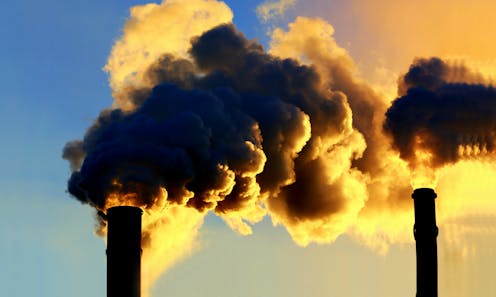Clearer rules on reporting companies' climate risks could soon put us on a path to decarbonising corporate Australia
- Written by Anita Foerster, Associate Professor, Monash University

Australian company directors have long had legal obligations to identify, disclose and manage material financial risks to the company. Where risks result from climate change, or from measures to mitigate climate change, they have an obligation to address and report these[1].
But until now there have been no clear rules on how to report.
A new proposal from Treasurer Jim Chalmers[2] on which the government wants comment by February 17[3] will require a standardised internationally‑aligned form of disclosure of climate‑related risks and opportunities, phased in from 2024-25.
It follows on the heels of the government’s legislated climate targets[4] and proposals to require big emitters to reduce emissions year by year under the previously-leglislated “safeguard mechanism[5]”.
Voluntary best-practice, international standards for climate reporting have been available for some time, developed by the Task Force on Climate-Related Financial Disclosures[6].
Commitments have been hard to compare
Around three-quarters[7] of large Australian companies are already using these standards.
An increasing number have also set long-term net-zero emissions targets[8].
But much of the reporting focuses on the easier aspects of the TCFD standards, which deal with governance and identifying risks, rather than setting out robust transition strategies with clear and measurable decarbonisation pathways aligned to the international Paris accord.
The companies that have adopted climate targets have been using a variety of definitions. Some refer to absolute emissions, some to reducing emissions intensity, and some only to certain business lines.
Very few submit their targets for external verification by bodies such as the Science-based Target Setting Initiative[9], an international accreditation platform for Paris-aligned targets.
Greenwashing concerns
There are also valid concerns about greenwashing, particularly in relation to net-zero pledges and claims of Paris alignment.
Corporate regulators are increasingly alert to greenwashing risks[10] and some companies are facing litigation over the veracity of their claims.
An ongoing case in the Federal Court against oil and gas company Santos[11] alleges it has been misleading and deceptive in disclosing a net-zero target, while continuing to pursue new high-emitting projects and relying on contentious offset strategies and immature carbon capture and storage technologies.
Completing the jigsaw
The proposed reforms offer a real chance to address these problems.
They would support companies to set out transition strategies, including decarbonisation targets, and to report on their progress using standardised metrics. They would also require clearer reporting of corporate emissions, including, where relevant, the Scope 3[12] emissions that companies are associated with.
The consultation paper also proposes options to strengthen and streamline the standard-setting, monitoring, and oversight functions of Australian regulators.
Sitting alongside the government’s legislated climate targets and the strengthened safeguard mechanism, the new reporting standards will help line up the puzzle pieces to drive corporate decarbonisation in Australia.
Read more: Half of Australia's biggest companies have net-zero emissions plans, but climate action may come too late[13]
References
- ^ to address and report these (www.aicd.com.au)
- ^ Jim Chalmers (cdn.theconversation.com)
- ^ February 17 (treasury.gov.au)
- ^ legislated climate targets (www.pm.gov.au)
- ^ safeguard mechanism (www.dcceew.gov.au)
- ^ Task Force on Climate-Related Financial Disclosures (www.fsb-tcfd.org)
- ^ three-quarters (home.kpmg)
- ^ net-zero emissions targets (lens.monash.edu)
- ^ Science-based Target Setting Initiative (sciencebasedtargets.org)
- ^ increasingly alert to greenwashing risks (asic.gov.au)
- ^ Santos (www.edo.org.au)
- ^ Scope 3 (www2.deloitte.com)
- ^ Half of Australia's biggest companies have net-zero emissions plans, but climate action may come too late (theconversation.com)
Authors: Anita Foerster, Associate Professor, Monash University







